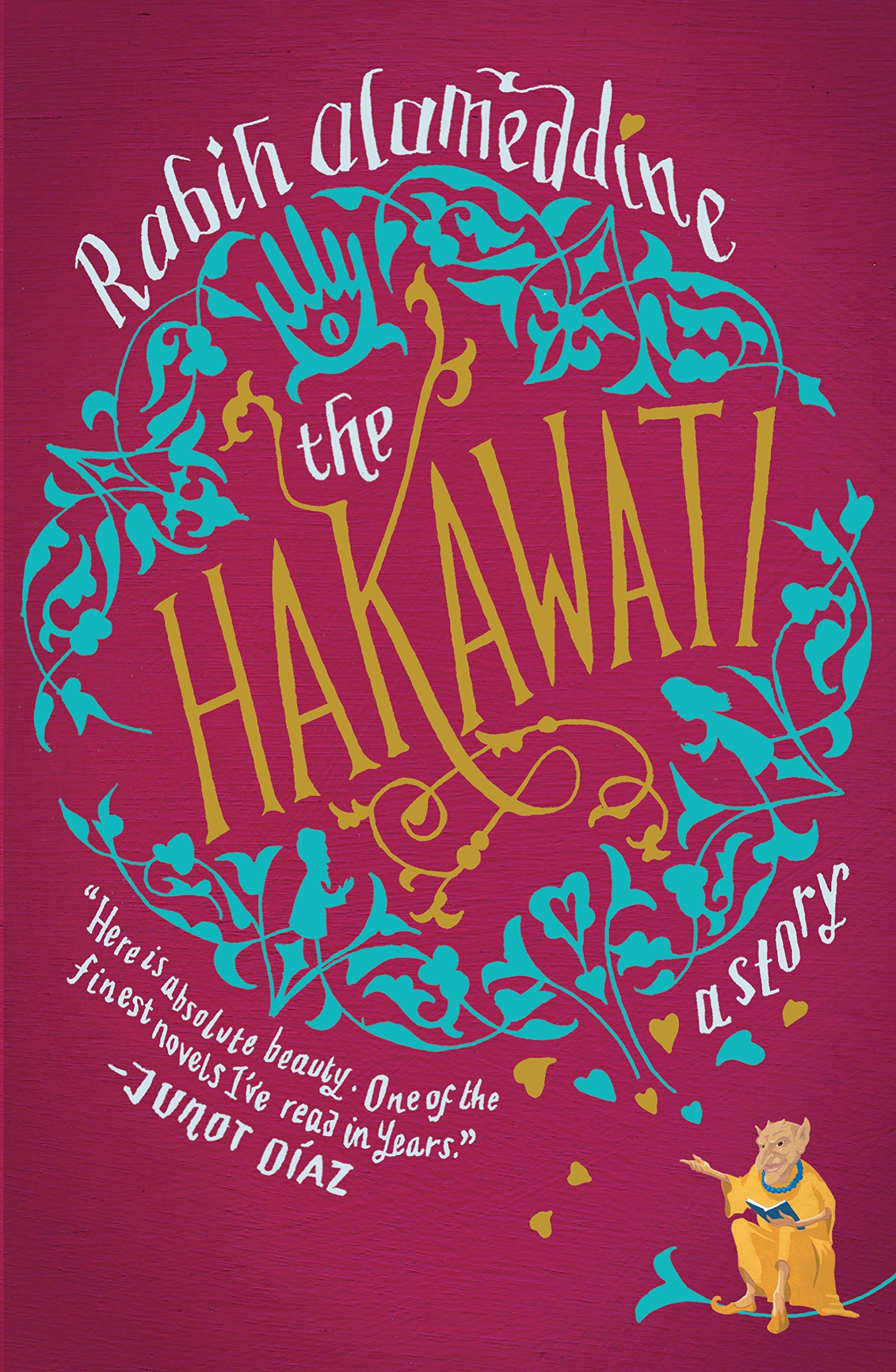
Armchair travel around the world!
Start your reading adventures with our FREE Reading Atlas.

- Around the World in 14 Books
- 7 Thrilling Book Series
- 6 Audiobooks That Are Like Theater For Your Ears



This family saga tinged with magic (513 pages) was published in June of 2009 by Anchor. The book takes you to Lebanon, past and present. Melissa read The Hakawati and loved it; it wouldn't be on our site if she didn't recommend it.
Bookshop.org is an online bookstore with a mission to financially support independent bookstores and give back to the book community.

In Arabic, hakawati means storyteller. This lyrical family saga weaves stories within stories within stories, mixing legend and myth, truth and tall tales.
The story begins in 2003 when a youngish man named Osama al-Khattar returns to Beirut. He thinks he’s going to celebrate the holiday of Eid Al-adha with his family. But when he arrives, he learns that his father is in the hospital, again, and is probably dying. The extended family is in and out of his hospital room, gossiping, bickering, and supporting each other. As Osama sits at his father’s bedside, he narrates his family story, all the way back to his great-grandparents and to his grandfather, a hakawati.
If that’s all we got, it would be very good. Rabih Alameddine is a captivating writer at both the storytelling level and the sentence level.
But he’s a hakawati himself, so into this family story, he also weaves two Arabian tales. There’s the legend of Fatima, a brave servant girl who becomes a fierce warrior, and the adventures of Baybars, a slave prince who defeated the Crusaders. All of these stories twist together and dance around each other like the steam rising from cups of hot tea.
This book is infused with magic. There are demons and djinn and witches and horses with magical powers. There are battles and beheadings, seductions and heroics, pigeon wars, poetry, and braggadocio. When Fatima, the daughter of Muhammad, marches into the underworld, she beds a powerful djinn and becomes the mistress of a group of imps who do her bidding.
There are also beautiful stories. In one poignant scene, Omar’s uncle tells the tale of a poet attacked by brigands. Carrying scrolls of papyrus across the desert, the poet was besieged. All of his poems were caught by the wind and blown away, scattered across the dunes. Listening to the story, Omar’s mother says, ‘Imagine. Poetry still hovering over the skies of Baghdad. Or buried under the desert sands. Someone drills a well in Iraq, and out gushes poetry instead of oil.’
There are also stories of family run-ins, both loving and difficult. Fathers and sons have a rough go of it in this family. The women are fierce and outspoken, but that doesn’t always work in their favor. There are family secrets and sniping — no one keeps their opinions to themselves. But there’s also so much love.
In an NPR interview, the author Rabih Alameddine described the hakawati like this: ‘At some point… hakawatis were the primary form of entertainment. They could tell a story and expand it for about… six months to a year. They could go on and on and on. Basically, they were paid on whether the audience wanted them back or not. If they weren’t able to hook an audience, they went hungry. And if… God forbid at one point, if they couldn’t tell a good story, they were beheaded.’
Storytelling in the Middle East is serious business, used for all kinds of reasons. To entertain or distract from painful circumstances. As currency. To understand the world. To teach a lesson. To enchant. To remember. The way this family says ‘I love you’ is by saying, Let me tell you a story.
My father didn’t like old Arabic cafés. According to him, only gamblers, drunkards, and swindlers patronized them. I assumed that everyone around us fit the description, because the café looked like every other one Uncle Jihad had taken me to. White paint peeled off the walls in sheets; cigarette and hookah smoke fumed the dank air. The customers sat on cheap wooden chairs with twine seats. The square tables were either Formica or white plastic. Greaseproof wraps and balls of foil speckled a few of the tables. Two kids roamed the room: a tea boy carried glasses filled with the scalding amber liquid, and a coal boy carried a brazier to replenish the hookah’s embers. On a small wooden platform, a lonely chair was pushed back against the dirt-stained wall. This was where the hakawati would sit. This was where my grandfather’s goldfish eyes remained fixed. — Rabih Alameddine
Wanna help us spread the word? If you like this page, please share with your friends.
Strong Sense of Place is a website and podcast dedicated to literary travel and books we love. Reading good books increases empathy. Empathy is good for all of us and the amazing world we inhabit.
Strong Sense of Place is a listener-supported podcast. If you like the work we do, you can help make it happen by joining our Patreon! That'll unlock bonus content for you, too — including Mel's secret book reviews and Dave's behind-the-scenes notes for the latest Two Truths and a Lie.
Join our Substack to get our FREE newsletter with podcast updates and behind-the-scenes info join in fun chats about books and travel.

We'll share enough detail to help you decide if a book is for you, but we'll never ruin plot twists or give away the ending.
Content on this site is ©2024 by Smudge Publishing, unless otherwise noted. Peace be with you, person who reads the small type.